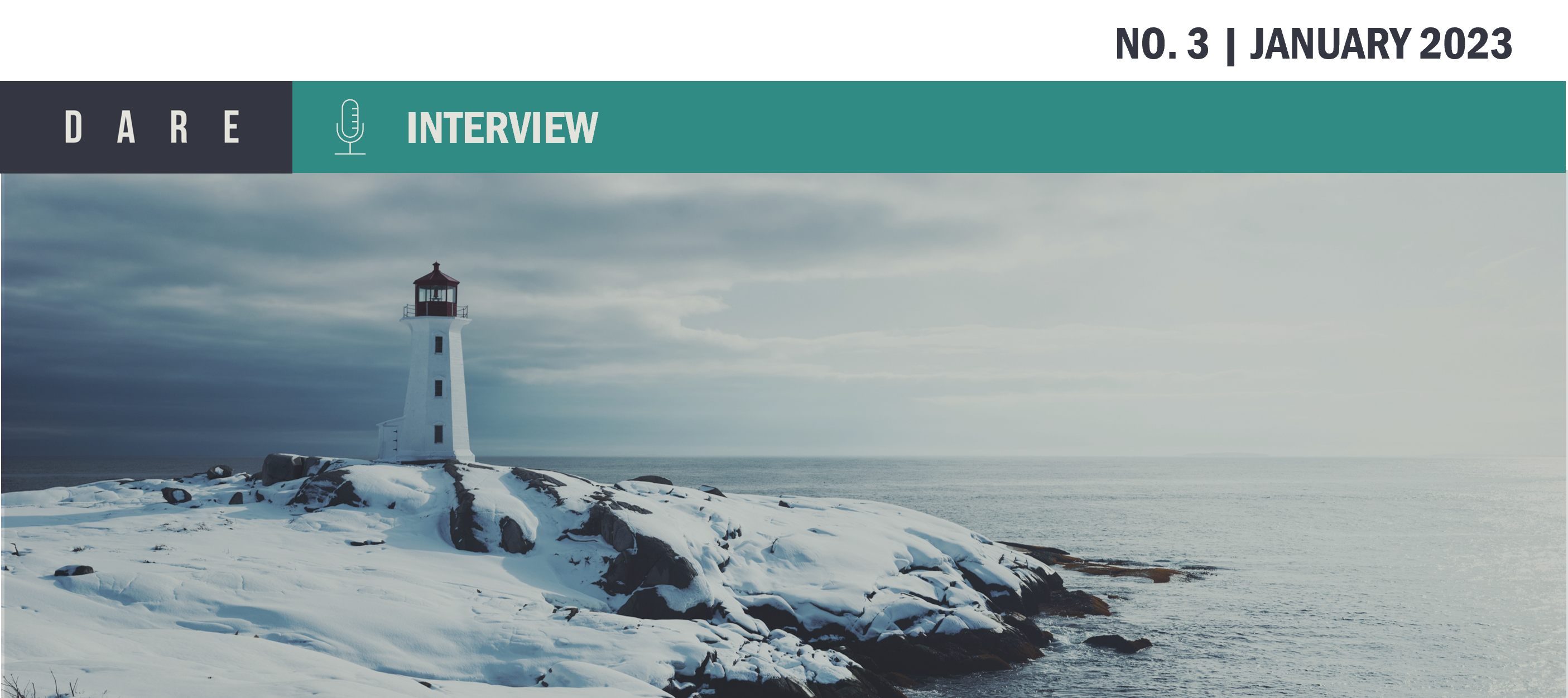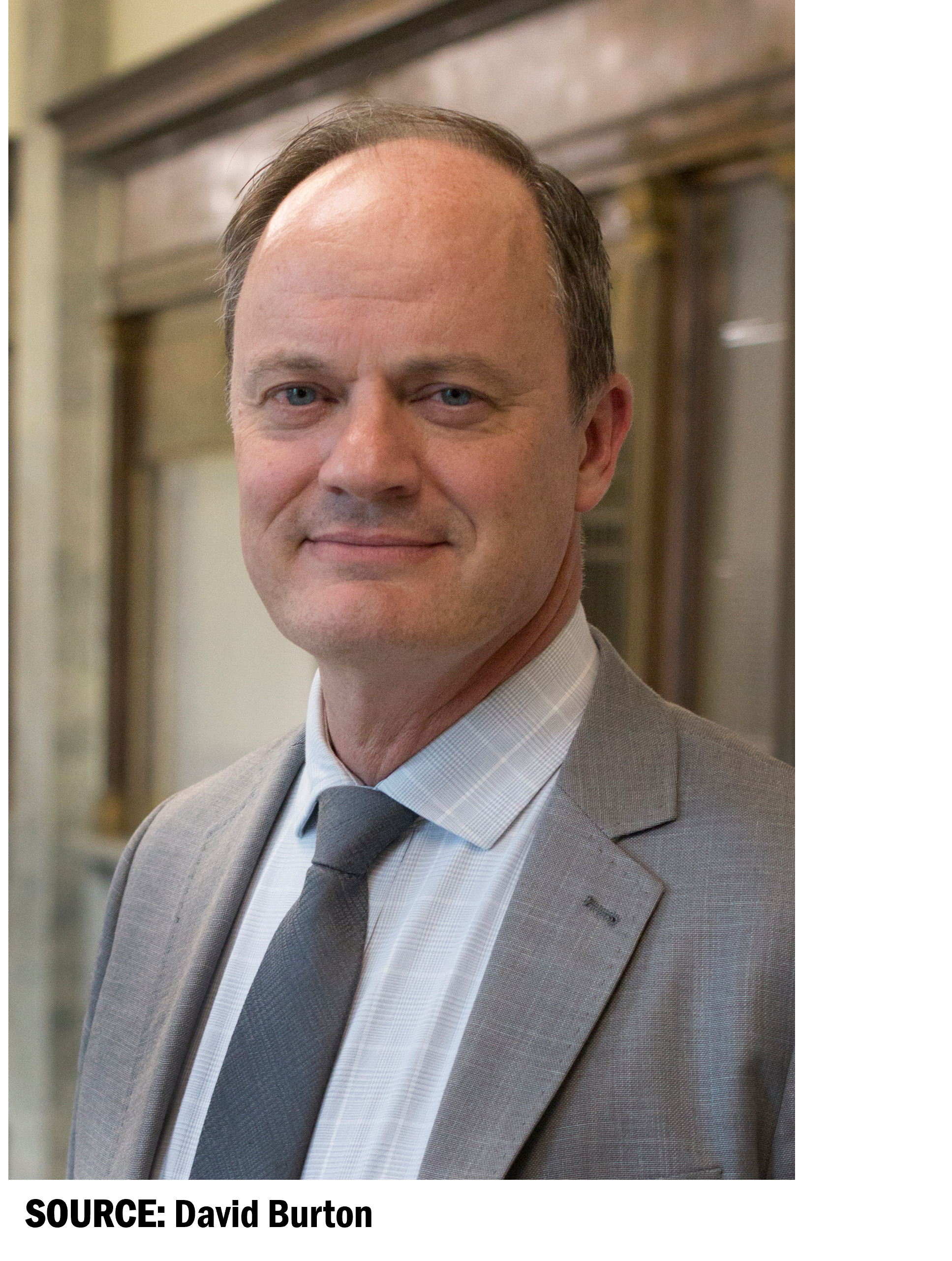Difference between revisions of "CNOLC-newsletter-no3/interview"
Anik.sauve (talk | contribs) (Created page with "<!--The following line of code hides the page title--> {{DISPLAYTITLE:<span style="position: absolute; clip: rect(1px 1px 1px 1px); clip: rect(1px, 1px, 1px, 1px);">{{FULLPAGE...") |
Anik.sauve (talk | contribs) |
||
| Line 70: | Line 70: | ||
| − | <p style="text-align:center"><span style="font-size:16px"><span style="font-family:Georgia,serif">''Please meet | + | <p style="text-align:center"><span style="font-size:16px"><span style="font-family:Georgia,serif">''Please meet David Burton, Official Languages Champion at the Atlantic Federal Council.''</span></span></p> |
<br> | <br> | ||
| − | <p></p><p><span style="font-size:16px"><span style="font-family:Georgia,serif"> | + | <p></p><p><span style="font-size:16px"><span style="font-family:Georgia,serif">David Burton was born and raised in Newfoundland and Labrador. He holds a Bachelor of Music degree from Memorial University of Newfoundland<ins>,</ins> and a Master of Business Administration from the University of British Columbia. David has worked in the federal public service for 32 years, nine 9 of which were spent in the former federal Management Trainee and Career Assignment Programs. He has held various positions at Treasury Board of Canada Secretariat, Veterans Affairs Canada, Health Canada and Canadian Heritage, which he joined in 2006, and where he has held a number of executive roles. Since 2018, he has served as the Atlantic Regional Director General there. David also serves on the Board of Directors for Compassion Canada, one of the country’s leading child sponsorship organizations.</span></span></p><p></p><p></p> |
| Line 82: | Line 82: | ||
| − | <span style="font-size:16px"><span style="font-family:Franklin Gothic, Demi Cond, sans-serif">''' | + | <span style="font-size:16px"><span style="font-family:Franklin Gothic, Demi Cond, sans-serif">'''How long have you been an Official Languages Champion?''' |
<span style="font-size:16px"><span style="font-family:Franklin Gothic, Demi Cond, sans-serif">''' ''' | <span style="font-size:16px"><span style="font-family:Franklin Gothic, Demi Cond, sans-serif">''' ''' | ||
| − | <br><span style="font-size:16px"><span style="font-family:Georgia,serif">I | + | <br><span style="font-size:16px"><span style="font-family:Georgia,serif">I became the OL Champion for the Atlantic Federal Council back in 2018, when I started my role as Atlantic Regional Director General at Canadian Heritage.</span></span> |
<span style="font-size:16px"><span style="font-family:Franklin Gothic, Demi Cond, sans-serif">''' ''' | <span style="font-size:16px"><span style="font-family:Franklin Gothic, Demi Cond, sans-serif">''' ''' | ||
| Line 91: | Line 91: | ||
<br> | <br> | ||
| − | <p><span style="font-size:16px"><span style="font-family:Franklin Gothic, Demi Cond, sans-serif">''' | + | <p><span style="font-size:16px"><span style="font-family:Franklin Gothic, Demi Cond, sans-serif">'''In this capacity, you lead the Atlantic Federal Council’s Official Languages Sub-Committee. Can you tell us about this group and the many innovative initiatives it has undertaken in your region?'''</p> |
<span style="font-size:16px"><span style="font-family:Franklin Gothic, Demi Cond, sans-serif">''' ''' | <span style="font-size:16px"><span style="font-family:Franklin Gothic, Demi Cond, sans-serif">''' ''' | ||
| − | <br><span style="font-size:16px"><span style="font-family:Georgia,serif"> | + | <br><span style="font-size:16px"><span style="font-family:Georgia,serif">The OL Sub-Committee is comprised of representatives from a dozen federal institutions in Atlantic Canada. We meet four times each year and lead a number of key OL initiatives for the Atlantic Federal Council. These include oversight of the annual Atlantic Official Languages Week, which is always held in the region in May and includes the awarding of OL Prizes to recognize outstanding OL contributions both within the public service and in the community. A highlight of Atlantic OL Week over the last two years has been an Atlantic “kitchen party”, the closing activity. The kitchen party features both French and English performing artists from each of the four Atlantic provinces.</span></span> |
| − | <span style="font-size:16px"><span style="font-family:Franklin Gothic, Demi Cond, sans-serif"> | + | <span style="font-size:16px"><span style="font-family:Franklin Gothic, Demi Cond, sans-serif"><span style="font-size:16px"><span style="font-family:Georgia,serif">In addition, the Sub-Committee provides oversight to the region’s annual events for Official Languages Day each September, champions initiatives to advance language training in the region, and provides a forum for sharing information on advancements related to Parts IV, V, VI and VII of the OL Act, often welcoming subject matter experts to speak to the Sub-Committee and/or the Atlantic Federal Council. The Sub-Committee’s work is supported by two networks – one focusing on Parts IV, V and VI of the Act, and another focusing on Part VII of the Act.</span></span> |
| − | |||
| − | <span style="font-size:16px"><span style="font-family:Georgia,serif">In | ||
| − | |||
| − | |||
| − | |||
| − | |||
| − | |||
<span style="font-size:16px"><span style="font-family:Franklin Gothic, Demi Cond, sans-serif">''' ''' | <span style="font-size:16px"><span style="font-family:Franklin Gothic, Demi Cond, sans-serif">''' ''' | ||
| − | <br><span style="font-size:16px"><span style="font-family:Franklin Gothic, Demi Cond, sans-serif">''' | + | <br><span style="font-size:16px"><span style="font-family:Franklin Gothic, Demi Cond, sans-serif">'''What do you appreciate most about your role as Official Languages Champion?''' |
<span style="font-size:16px"><span style="font-family:Franklin Gothic, Demi Cond, sans-serif">''' ''' | <span style="font-size:16px"><span style="font-family:Franklin Gothic, Demi Cond, sans-serif">''' ''' | ||
| − | <br><span style="font-size:16px"><span style="font-family:Georgia,serif"> | + | <br><span style="font-size:16px"><span style="font-family:Georgia,serif">I am always inspired by the desire of dedicated public servants in Atlantic Canada to see OL thrive here in the region. In many cases, those involved in the work do it on the corner of their desks, as an add-on to their core roles as public servants. When you work with people who are that committed to a principle, you cannot help but be moved and inspired by it.</span></span> |
| − | <span style="font-size:16px"><span style="font-family:Franklin Gothic, Demi Cond, sans-serif"> | + | <span style="font-size:16px"><span style="font-family:Franklin Gothic, Demi Cond, sans-serif"><span style="font-size:16px"><span style="font-family:Georgia,serif">I grew up in a small town in rural Newfoundland and Labrador. Learning my second language did not come easily, and my own linguistic insecurity has led me to take risks and to go out on a limb, so to speak, at many times in my career. But I believe a personal commitment to OL makes Canada a better country, and my own efforts to improve my second language has made me a better person. Therefore, having a leadership role in OL is something I regard as an honour.</span></span> |
| − | <span style="font-size:16px"><span style="font-family:Georgia,serif"> | + | <span style="font-size:16px"><span style="font-family:Franklin Gothic, Demi Cond, sans-serif"><span style="font-size:16px"><span style="font-family:Georgia,serif">If, as OL Champion, I can encourage others to take linguistic risks and inspire them on their own linguistic journeys, then I will know that I’ve made a difference in the public service and in the OLCM, no matter how small. I often end our OL Sub-Committee meetings by reminding the team of the following: ''“When it comes to OL, if not us, then who?”'' We have to continue to lead OL development with courage and energy, and it truly brings a lot of joy.</span></span> |
<span style="font-size:16px"><span style="font-family:Franklin Gothic, Demi Cond, sans-serif">''' ''' | <span style="font-size:16px"><span style="font-family:Franklin Gothic, Demi Cond, sans-serif">''' ''' | ||
| − | <br><span style="font-size:16px"><span style="font-family:Franklin Gothic, Demi Cond, sans-serif">''' | + | <br><span style="font-size:16px"><span style="font-family:Franklin Gothic, Demi Cond, sans-serif">'''What a great way to end this interview. Let’s conclude with your question, which will certainly resonate with official language champions: ''"When it comes to OL, if not us, then who?"'' David, we thank you for this interview.''' |
<p> </p> | <p> </p> | ||
Revision as of 13:07, 17 January 2023
INTERVIEW WITH AN OFFICIAL LANGUAGES CHAMPION
Please meet David Burton, Official Languages Champion at the Atlantic Federal Council.
David Burton was born and raised in Newfoundland and Labrador. He holds a Bachelor of Music degree from Memorial University of Newfoundland, and a Master of Business Administration from the University of British Columbia. David has worked in the federal public service for 32 years, nine 9 of which were spent in the former federal Management Trainee and Career Assignment Programs. He has held various positions at Treasury Board of Canada Secretariat, Veterans Affairs Canada, Health Canada and Canadian Heritage, which he joined in 2006, and where he has held a number of executive roles. Since 2018, he has served as the Atlantic Regional Director General there. David also serves on the Board of Directors for Compassion Canada, one of the country’s leading child sponsorship organizations.
How long have you been an Official Languages Champion?
I became the OL Champion for the Atlantic Federal Council back in 2018, when I started my role as Atlantic Regional Director General at Canadian Heritage.
In this capacity, you lead the Atlantic Federal Council’s Official Languages Sub-Committee. Can you tell us about this group and the many innovative initiatives it has undertaken in your region?
The OL Sub-Committee is comprised of representatives from a dozen federal institutions in Atlantic Canada. We meet four times each year and lead a number of key OL initiatives for the Atlantic Federal Council. These include oversight of the annual Atlantic Official Languages Week, which is always held in the region in May and includes the awarding of OL Prizes to recognize outstanding OL contributions both within the public service and in the community. A highlight of Atlantic OL Week over the last two years has been an Atlantic “kitchen party”, the closing activity. The kitchen party features both French and English performing artists from each of the four Atlantic provinces.
In addition, the Sub-Committee provides oversight to the region’s annual events for Official Languages Day each September, champions initiatives to advance language training in the region, and provides a forum for sharing information on advancements related to Parts IV, V, VI and VII of the OL Act, often welcoming subject matter experts to speak to the Sub-Committee and/or the Atlantic Federal Council. The Sub-Committee’s work is supported by two networks – one focusing on Parts IV, V and VI of the Act, and another focusing on Part VII of the Act.
What do you appreciate most about your role as Official Languages Champion?
I am always inspired by the desire of dedicated public servants in Atlantic Canada to see OL thrive here in the region. In many cases, those involved in the work do it on the corner of their desks, as an add-on to their core roles as public servants. When you work with people who are that committed to a principle, you cannot help but be moved and inspired by it.
I grew up in a small town in rural Newfoundland and Labrador. Learning my second language did not come easily, and my own linguistic insecurity has led me to take risks and to go out on a limb, so to speak, at many times in my career. But I believe a personal commitment to OL makes Canada a better country, and my own efforts to improve my second language has made me a better person. Therefore, having a leadership role in OL is something I regard as an honour.
If, as OL Champion, I can encourage others to take linguistic risks and inspire them on their own linguistic journeys, then I will know that I’ve made a difference in the public service and in the OLCM, no matter how small. I often end our OL Sub-Committee meetings by reminding the team of the following: “When it comes to OL, if not us, then who?” We have to continue to lead OL development with courage and energy, and it truly brings a lot of joy.
What a great way to end this interview. Let’s conclude with your question, which will certainly resonate with official language champions: "When it comes to OL, if not us, then who?" David, we thank you for this interview.





